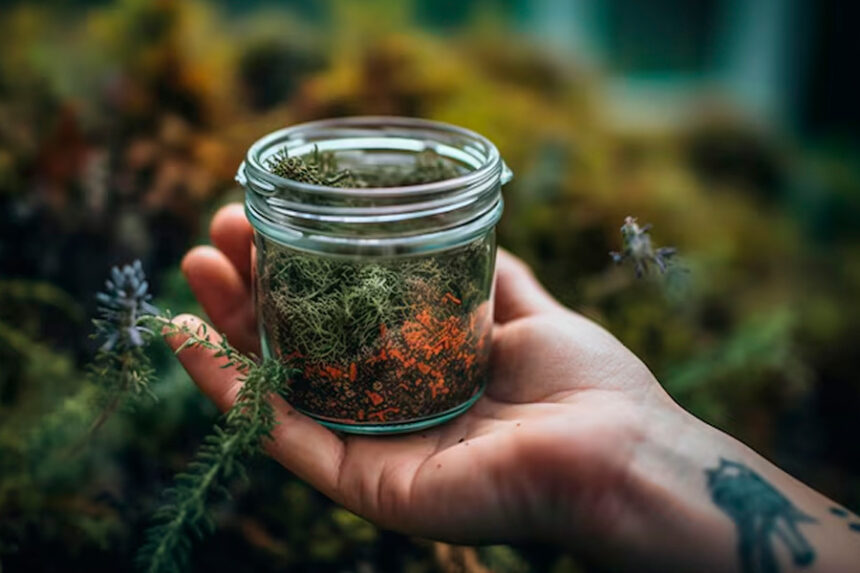In the pursuit of wellness, many people gravitate towards natural remedies, assuming that anything derived from plants must inherently be safe and effective. The allure of herbal health solutions has captivated millions for centuries, but along this journey, a multitude of myths have surfaced and lingered. These misconceptions can lead to ineffective treatments, unexpected side effects, and misplaced trust in substances that may not deliver as promised.
It’s crucial to uncover the herbal health myths that we should promptly stop believing, not to undermine the power of nature, but to approach it with wisdom and discernment.
The Myth: All Herbal Remedies Are Safe Because They’re Natural
One of the most deeply ingrained herbal health myths is the belief that natural equals safe. This is far from the truth.
Nature produces some of the most potent toxins known to humankind—consider poison ivy or deadly nightshade. Similarly, many herbs can cause serious harm if misused, consumed in high doses, or combined with certain medications.
For example:
- Comfrey can damage the liver.
- Ephedra has been linked to heart attacks and strokes.
- Kava has the potential for severe liver toxicity.
The idea that natural remedies carry no risk is a dangerous assumption that we must stop believing immediately.
The Myth: Herbal Supplements Are Always Pure and Uncontaminated
The booming global market of herbal health supplements is not universally regulated. This lack of stringent oversight allows for contamination, mislabeling, and inconsistent dosages.
Independent lab testing has uncovered shocking results:
- Heavy metals in popular herbal teas.
- Unlisted pharmaceutical drugs are found in some slimming herbal products.
- An incorrect plant species was substituted in place of the advertised herb.
Without proper quality control, consumers might unknowingly ingest harmful substances or ineffective substitutes.
Trustworthy cloud hosting and blockchain-based tracking systems are starting to improve supply chain transparency, but much of the industry still operates in the shadows. This is one myth that demands extra scrutiny.
The Myth: More Is Better
Many people assume that if an herb is good in small amounts, taking more will accelerate benefits. This is one of the most harmful herbal health myths people need to stop believing.
Increased dosages can:
- Overwhelm the liver and kidneys.
- Disrupt hormone balances.
- Causes allergic reactions.
For example:
- Licorice root in high doses can lead to dangerously high blood pressure and potassium depletion.
- Ginseng overdosing can trigger insomnia, headaches, and heart palpitations.
When it comes to herbal remedies, moderation and professional guidance are key.
The Myth: Herbal Medicine Doesn’t Interact With Pharmaceuticals
One of the most overlooked myths about herbal health is the misconception that herbs and prescription drugs can be taken together without concern.
In reality:
- St. John’s Wort can reduce the effectiveness of birth control pills, antidepressants, and blood thinners.
- Ginkgo biloba can increase bleeding risk when taken with anticoagulants.
- Garlic supplements can lower blood pressure excessively when combined with antihypertensive drugs.
Ignoring these interactions can have life-threatening consequences. Always consult healthcare providers before combining treatments.
The Myth: All Traditional Herbal Practices Are Scientifically Proven
It’s comforting to believe that ancient wisdom is backed by modern science, but this is one of the most pervasive herbal health myths we must stop believing.
While some herbs like turmeric and peppermint have scientific backing, others remain unsupported or even debunked by clinical studies.
For example:
- Goldenseal is often touted for immune support, but research suggests it may not be effective.
- Echinacea has mixed evidence regarding cold prevention.
Cultural longevity doesn’t automatically validate a remedy’s effectiveness.
The Myth: Herbal Products Are Fast-Acting Miracle Cures
The promise of quick results is one of the most attractive myths in the herbal health space.
The reality:
- Herbs typically work gradually, supporting systemic balance over time rather than delivering instant results.
- Fast-acting herbal products are often spiked with pharmaceutical compounds, sometimes illegally.
Natural healing is often a slow and steady process. Expecting overnight transformation is a misconception we must stop believing.
The Myth: Labels Like “Organic” and “Natural” Guarantee Quality
Consumers often assume that products labeled as “natural” or “organic” are automatically superior.
However:
- “Natural” is largely a marketing term with no strict regulatory definition in many countries.
- “Organic” certification can vary by region and does not necessarily guarantee potency, freshness, or proper harvesting methods.
Some companies utilize sophisticated cloud hosting systems to verify sourcing and authenticity, but this remains an exception, not the rule.
The Myth: Topical Herbal Products Are Completely Harmless
People often think that applying herbal creams, oils, or patches externally poses no risk. This is another myth we must stop believing.
Topical applications can still:
- Causes skin irritations or allergic reactions.
- Be absorbed systemically, especially through broken skin.
- Interact with medications applied to the same area.
Even natural essential oils like tea tree and lavender can lead to hormone disruption when misused.
The Myth: Herbal Teas Are Always Gentle and Safe for Everyone
Herbal teas seem harmless, but they can be surprisingly potent.
For example:
- Senna tea can cause dependency if used regularly as a laxative.
- Chamomile tea can trigger allergic reactions in people sensitive to ragweed.
- Licorice tea can elevate blood pressure when consumed frequently.
The myth of herbal tea being universally gentle is one to decisively stop believing.
The Myth: Self-Diagnosing and Self-Medicating With Herbs Is Safe
With the rise of online information, people often believe they can self-prescribe herbal treatments effectively.
However:
- Symptoms may indicate underlying conditions that require professional diagnosis.
- Misidentification of herbs, especially in foraging, can be dangerous.
- Mixing herbs with a poor understanding can lead to unanticipated consequences.
Professional herbalists and healthcare practitioners are essential guides in this intricate field.
The Myth: Celebrity and Influencer Endorsements Prove Effectiveness
Modern advertising relies heavily on influencers and celebrity testimonials.
Yet:
- Many endorsements are paid partnerships, not genuine medical endorsements.
- Influencers may lack the scientific literacy to properly assess products.
Basing health choices on fame rather than evidence is a myth that consumers must decisively stop believing.
The Myth: Herbal Medicine Can Replace Allopathic Medicine Completely
While herbal health offers valuable support for many conditions, the myth that it can fully replace conventional medicine is dangerous.
Serious conditions like cancer, severe infections, and major organ diseases often require medical interventions that herbs alone cannot resolve.
Using herbal remedies as complementary—not exclusive—therapies provides a safer, more balanced approach.
The Myth: More Expensive Herbal Products Are Always Better
Price tags often influence perceptions of quality. However, a high price does not necessarily indicate superior sourcing, preparation, or effectiveness.
Key considerations should include:
- Company transparency.
- Scientific backing.
- Independent quality testing.
Sophisticated supply chains sometimes employ cloud hosting for traceability, but inflated prices without evidence-based support should raise skepticism.
The Myth: Herbs Are Safe During Pregnancy Because They’re Natural
Pregnancy is a time when misinformation about herbal health can have serious consequences.
Certain herbs, such as:
- Dong quai
- Blue cohosh
- Pennyroyal
are known to induce contractions or cause miscarriage. The myth that natural equals safe is particularly harmful in this context and must be rejected immediately.
Pregnant individuals should always seek professional advice before consuming any herbal remedies.
The Myth: Ancient Use Equals Scientific Validity
The duration of a practice does not automatically equate to its effectiveness. Some myths have been perpetuated for centuries due to tradition, not evidence.
For example:
- The belief that horny goat weed is a guaranteed aphrodisiac lacks consistent scientific validation.
- The long-held use of willow bark for pain has been mostly replaced by aspirin, which is more predictable and safer.
Respect for ancient practices should coexist with modern scientific scrutiny.
Embracing Technology for Safer Herbal Choices
Modern technologies like cloud hosting are beginning to reshape the herbal health industry. By improving supply chain transparency, product traceability, and real-time quality monitoring, cloud hosting helps dismantle some of the traditional myths that arise from uncertainty and poor regulation.
Innovative companies now leverage cloud hosting to:
- Track every step from harvest to shelf.
- Verify sourcing regions.
- Ensure batch consistency.
By embracing such advancements, consumers can make more informed and safer choices.
Conclusion
The world of herbal health is rich with potential, but it is also laden with persistent myths that can misguide well-intentioned consumers. To stop believing in these misconceptions is to take a step toward more empowered, safer, and evidence-based health choices.
While nature offers incredible remedies, discernment is essential. Labels, influencers, and ancient traditions cannot replace scientific validation, professional advice, and critical thinking. By separating fact from fiction, and embracing technological innovations like cloud hosting, we can approach herbal health with the respect and caution it deserves—honoring its power without falling victim to its myths.



